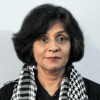The divergent economic narrative
A widely divergent narrative on the state of the economy is by now visibly apparent between the assessment by the general public and those loyal to the government.
It is critical to understand the reasons for the divergence with the objective of converging the two narratives, thereby not only ensuring widespread support for the ongoing harsh upfront International Monetary Fund’s (IMF’s) reform agenda but, going forward, to pre-empt the possibility of socio-economic unrest that has led to political upheaval in three South Asian countries – Sri Lanka, Bangladesh, and Nepal.
The government’s focus is largely on cyclical balance of payments’ issues (due to the increase in economic volatility over time as per the IMF’s 10 October 2024 staff level report based on a “tight correlation between Pakistan boom bust economic outcomes and its macroeconomic policies”) that compelled administration after administration to seek an IMF loan (the country is currently on its twenty-fourth loan) with associated harsh politically challenging conditions. These have become harsher and increasingly upfront over time, as administrations promptly abandoned reforms as soon as foreign exchange reserves reached a level considered sufficient to provide an anchor to the external and internal value of the rupee. This is notwithstanding the fact that reserves are at a high of 14,440 million dollars (as of 10 October 2025) though they are entirely sourced to foreign debt.
Balance of payments is a record of all economic transactions between Pakistanis and other nationalities and comprises of three accounts: current account (trade balance), financial account (investments) and capital account (transfers........






















 Toi Staff
Toi Staff Sabine Sterk
Sabine Sterk Gideon Levy
Gideon Levy Mark Travers Ph.d
Mark Travers Ph.d Waka Ikeda
Waka Ikeda Tarik Cyril Amar
Tarik Cyril Amar Grant Arthur Gochin
Grant Arthur Gochin
